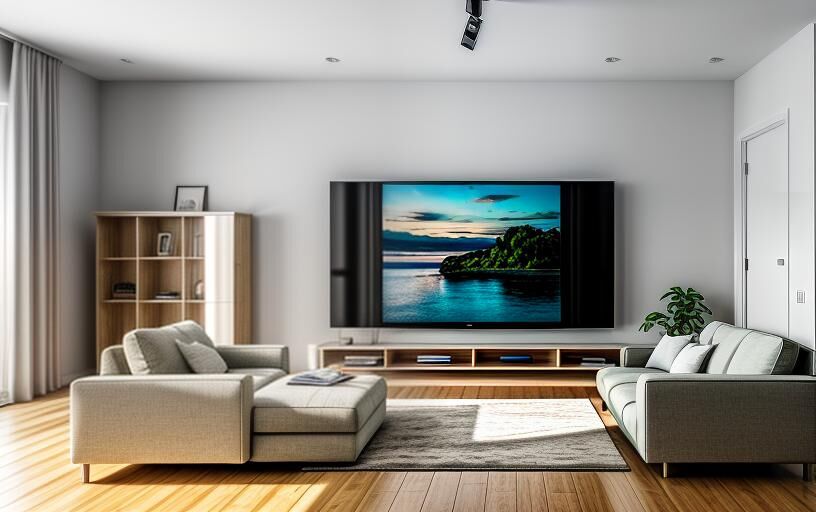Incorporating smart home technology into your living space is no longer a futuristic dream; it is a reality that offers convenience, security, and energy efficiency. With the continual advancements in technology, homeowners now have unprecedented control over their environments. Smart home technology encompasses a range of devices and systems, all designed to enhance everyday living by automating tasks, monitoring activities, and providing seamless connectivity. This shift towards smarter homes not only elevates comfort but also leads to significant cost savings and peace of mind.
One of the most appealing aspects of smart home technology is its ability to streamline daily routines. Imagine waking up in the morning and having your coffee maker start brewing as soon as your alarm goes off, or your thermostat adjusting the temperature to your preferred setting before you even get out of bed. Smart home devices are designed to work in concert, which means you can set schedules, create scenes, and automate processes to minimize manual intervention. This makes life not just easier but also more efficient.
Security is another critical element where smart home technology shines. With the ability to monitor your home remotely, smart security systems provide an added layer of protection. Surveillance cameras, doorbell cameras, and smart locks allow homeowners to keep an eye on their property from anywhere, using their smartphones or tablets. Alerts can be sent directly to your device if any unusual activity is detected, giving you the authority to respond promptly. Furthermore, you can also integrate sensors that detect smoke, carbon monoxide, and water leaks, ensuring that you are alerted to potential dangers even when you are not home.
Energy efficiency is a pressing concern for many homeowners, and smart home technology excels in this area as well. By optimizing energy usage, smart devices contribute to lowering utility bills and reducing your carbon footprint. Smart thermostats, for example, learn your habits and adjust heating and cooling schedules accordingly, ensuring that energy is not wasted when you are not at home. Smart lighting systems can also be programmed to turn off lights automatically when a room is unoccupied or dimmed during certain times of the day, enhancing energy conservation.
Another benefit of smart home technology is the ease of integration and user-friendly interfaces. Many systems are designed with compatibility in mind, which means you can control various devices through a single app or voice assistant. This level of interconnectedness simplifies the user experience, allowing for seamless communication between devices. Whether it is adjusting the lighting with a voice command or programming your security system through an intuitive mobile app, the convenience factor cannot be overstated.
Moreover, the customization options are expansive. Smart home technology allows homeowners to personalize their environments to meet individual needs and preferences. For instance, you can create specific lighting moods for movie nights or set your home to automatically lock the front door when you leave for work. The ability to tailor settings to your lifestyle means that your home can truly become a reflection of who you are and what you want out of your living space.
As you consider incorporating smart home technology into your own home, it is essential to start with a plan that aligns with your goals. Identify the areas that are most important to you, whether it’s security, energy efficiency, or convenience. Begin by investing in foundational devices such as smart speakers, smart bulbs, or security cameras. As you grow more comfortable with the technology, you can expand your system to include more advanced features like automated window treatments or a comprehensive home automation hub.
One of the challenges in embracing smart home technology is ensuring that the systems you choose are secure. With the increasing connectivity of devices, there is a heightened risk of cyber threats. To protect yourself and your home, it is crucial to practice good cyber hygiene. This includes changing default passwords, regularly updating software, and using secure Wi-Fi networks. By taking these precautions, you can enjoy the benefits of smart technology without compromising your safety.
In conclusion, incorporating smart home technology offers a multitude of benefits that can transform your living experience. From enhanced security to energy efficiency and personalized automation, the advantages are significant. As technology continues to evolve, the possibilities for smart homes will only expand, making now the perfect time to invest in this future-forward approach to home living. Whether you’re looking to simplify your daily routines, improve your home’s security, or practice energy conservation, smart home technology presents a valuable solution that meets a variety of needs. Embrace the convenience of smart living, and transform your home into an intelligent, responsive, and safe environment. With the right devices and proper planning, your home can enhance your quality of life in ways you never imagined possible.

